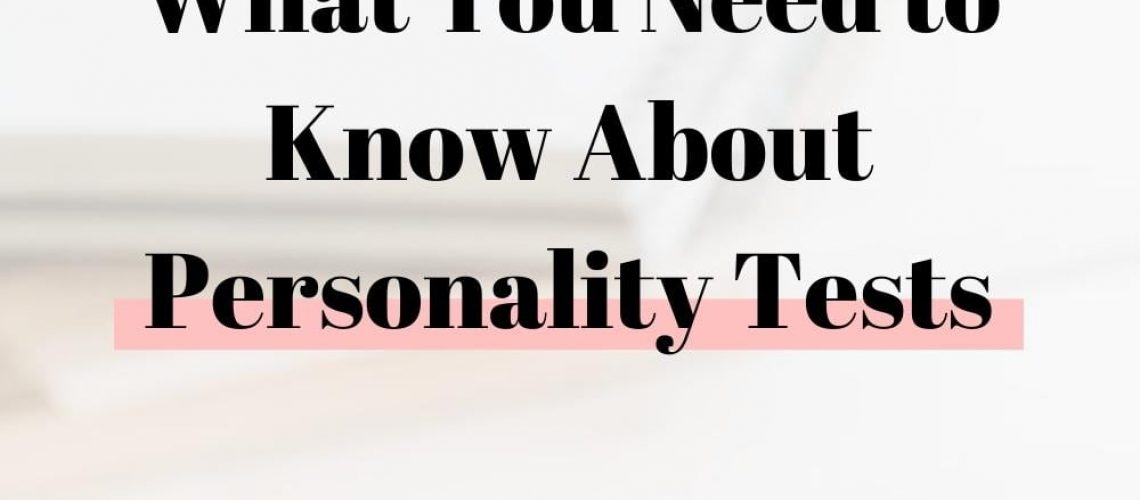You’re feeling really confident and excited, as you think you may have pulled off the interview of your life. There’s just one thing you need to do now: search and find a pre employment personality test.
After carefully considering your qualifications, you may be tempted to sit back and wait for a phone call with an offer. But really, sitting, waiting and watching TV never helped anyone. It’s never too early to plan for the future. The job search process is becoming more difficult with every new year — and it’s not just because companies are applying with too many candidates, increase in candidates or overwhelming, recruiters are more often being asked to take a personality test designed by a company called: pre-employment personality testing to help prioritize their list of candidates.
What is the purpose of a pre-employment personality test?
Good question. The tests are used to find candidates who will be the best fit for various posts in company. The test’s goal is to determine if an employee will be suitable for the role and organization.
Companies are looking for results from the pre-employment tests that can help them to identify their best candidates?
Research shows that employees work better in an environment that matches their personality. If an employee isn’t happy, there will be reduced engagement at the workplace. Low employee engagement results in 24 percent lower productivity and about 47 percent higher turnover, and replacing employees is expensive.
Hiring a new employee for your company is expensive and time-consuming. Besides, hiring the same person over and over at other companies probably won’t give them a very good work ethic. In today’s metric, based on work culture, employers and hiring managers are searching for a recruitment tool with a predictive index, this makes it easy to quantify the potential outcomes of making a given decision for a company. Pre-employment personality tests are now delivered to your inbox before you receive an offer. Once candidate completes the test, results then are reviewed, verified, and normalized against other candidates. This ensures compatibility with the company and shortens the hiring process.
Now that you know how popular these assessments are, and why, how about how to handle them? Here are some common versions of these tests, and tips on how to pass them:
- The Caliper Profile
The Caliper Profile measures how a person’s personality traits affect their performance in the workplace. Hiring personality test is made up of a few different types of sample questions. The most common type presents you with a series of statements, and your task is to decide which statement best aligns with your opinion.
Conversely, you’ll also find questions asking which of the statements least reflect your point of view. True/false and multiple-choice questions might include a scale for degrees of agreement.
Caliper Profile Tip: An employer can create a customized selection tool that will allow them to customize the assessment to target critical behaviors. This will help them receive data on job-fit matches or information about a candidate’s potential success in a specific role.
- The Myers-Briggs Type Indicator
One method for mapping employee personalities is the Myers-Briggs Type Indicator. 89 out of the Fortune 100 companies make use of that test before hiring an applicant too.
The MBTI evaluates the personality of an employee, categorizing them as one of four types: Extraversion, Intuition, Thinking or Judging. A lot of organizations test job applicants for what personality type they belong to, as this can help when choosing who should be hired. There are 16 types and an individual could fall into one of them. The Myers-Brigg Type Indicator is a commonly used tool for this.
Myers – Briggs Tip: The Myers-Briggs Type Indicator is not a standardized exam, so it’s hard to prepare for. It’s been argued that they’re not effective in recruitment-and there’s no proof they’re useful in any way. in fact, test is more appropriate for understanding how a person may work in a group, but not in determining if a candidate is appropriate for a given position. The downside is that it can become difficult to compare your score to that of a different applicant, who might be applying for the same position.
- The SHL Occupational Personality Questionnaire
This personality questionnaire is designed for companies to see how certain traits could impact a candidate’s performance. The test is made up of 104 questions that measure 32 different characteristics. Candidates are evaluated based on 3 key spheres: “Thinking Style and Feelings,” “Relationship with People,” and “Emotions.”
These job personality tests may help you.
It doesn’t matter if it’s because of convenience, acceptance or even passive consumption, pre-employment testing is here to stay. We’ve all taken personality tests, but most of them are not designed for job seekers. These tests are created to help people understand themselves and their relationships better.
However, the Myers-Briggs Type Indicator is the only test that has been used in corporate settings for a long time. A recent study revealed that the top reason executives fail in both internal and external hires is behavioral compatibility, so it’s clear that personality testing can be beneficial for employers.
